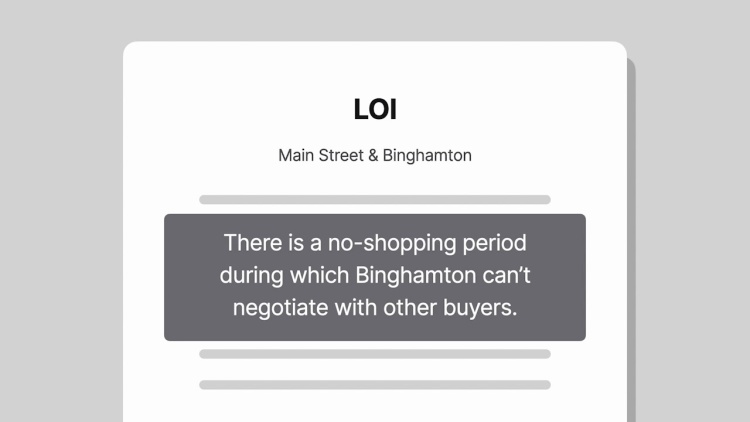Main Street Baseball, LLC v. Binghamton Mets Baseball Club, Inc.
United States District Court for the Northern District of New York
103 F. Supp. 3d 244 (2015)
- Written by Angela Patrick, JD
Facts
Main Street Baseball, LLC (plaintiff) negotiated with Binghamton Mets Baseball Club, Inc. (defendant) for almost five months to buy a minor-league baseball team. The parties then signed a “mutual and fully binding” letter of intent (LOI) “to pursue the proposed acquisition of the [team].” The LOI: (1) set many deal terms, including the sale price, a payment schedule, and the existence of indemnification; (2) stated that it was “a legally binding commitment” “to execute and deliver the Asset Purchase Agreement” (APA) that would actually transfer ownership of the team; and (3) set a 60-day period during which Binghamton would not entertain any other offers and the parties would “use their reasonable best efforts to negotiate, execute and deliver . . . a mutually agreeable [APA].” After the LOI was executed, Main Street made a security deposit of $100,000. During the APA negotiations, Binghamton proposed defining limits for the indemnification term, and Main Street suggested adding new terms (about matters like guaranteeing no loss for the first season, arbitration, and accounts-receivable collections). The 60-day period expired without the parties executing an APA. Binghamton then accepted an offer from a different buyer. Main Street sued, claiming that the LOI was a binding contract and Binghamton had breached it. Main Street moved for a preliminary injunction to prevent Binghamton from selling the team during the lawsuit.
Rule of Law
Issue
Holding and Reasoning (Hurd, J.)
What to do next…
Here's why 907,000 law students have relied on our case briefs:
- Written by law professors and practitioners, not other law students. 47,100 briefs, keyed to 996 casebooks. Top-notch customer support.
- The right amount of information, includes the facts, issues, rule of law, holding and reasoning, and any concurrences and dissents.
- Access in your classes, works on your mobile and tablet. Massive library of related video lessons and high quality multiple-choice questions.
- Easy to use, uniform format for every case brief. Written in plain English, not in legalese. Our briefs summarize and simplify; they don’t just repeat the court’s language.





